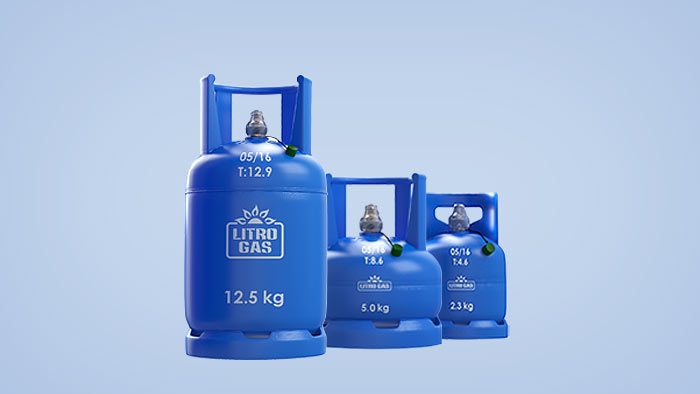Check devices before use, says Litro Gas

Litro Gas Lanka, yesterday reiterated that the LPG brought into Sri Lanka meets internationally ratified compositions of propane and butane, certified and tested twice at point of loading and unloading by GEO-CHEM Lanka (Pvt) Ltd.
The Company assured that the LPG that is loaded onto the ship at supplier point is unloaded at Kerawalapitiya and stored in LPG storage spheres after which point cylinders of varied sizes are filled in the factory. The entire process which is done under strictest safety standards, does not involve any tampering in Sri Lanka while LPG is stored and filled into cylinders with the same specifications they have been shipped with.
“The LPG shipped by Litro Gas Lanka undergoes rigorous testing at point of loading and unloading in Kerawalapitiya ; additionally, we obtain independently verified and certified reports on the LPG composition from Geochem, an independent energy and LPG verification agency,” says Pushpakumara Edirisinghe Director Operations – Litro Gas Terminals, “ These standards have been internationally accepted and further approved by the Cabinet of Ministers through a tender process. For over five years, these standards have been maintained for every shipment of LPG to Litro Gas Lanka.”
Litro Gas Lanka says that the Company possesses 8,000 MT LPG capacity which means that a new LPG stock is required every six to seven days to meet the market demand; a new shipment of LPG arrives at the Kerawalapitiya filling plant every 3 to 4 days, ensuring that customers are given a seamless supply of LPG.
Although the Company introduced the 18 Litre cylinder earlier this year, it was soon taken off the market by a Government directive and is no longer available in the market since June 2021.
Concerning safety which forms a vital component in handling LPG, Hemachandra Gunathilake Channel Safety Advisor of Litro Gas Lanka states that the globally accepted best practices should be deployed at all times when handling LPG for cooking or for any other purpose. This means checking the hose, the regulator, the cooker and the connecting system which includes the safety clip of the cylinder. “If there are any LPG leaks, it is detectable with the smell and visibility – additionally, the only correct method of checking for leaks is when the entire system is connected and observed.”
While advising consumers to refrain from resorting to unverified methods such as a soap test to determine leaks, Litro Gas Lanka points out that the correct safety protocols must be followed at all times when using LPG and if there is indeed an emergency, 1311 must be contacted to help understand the situation and mitigate it.
The Company points out that in all instances where customers have complained about possible LPG leaks, the compromising of safety has taken place as a result of broken or damaged hose, regulator or the cooker. “All of these devices must be checked and replaced regularly to ensure best possible safety performance, “he adds. He further adds that the hose must be changed on or before every two years and the regulator on or before every five years.
(Source: Daily News)
Latest Headlines in Sri Lanka
- Police open fire on fleeing vehicle, arrest couple with cannabis in Hokandara February 24, 2025
- Petitions against Deshabandu’s IGP appointment fixed for hearing February 24, 2025
- Sri Lanka’s Defence Secretary orders immediate arrest of military deserters February 24, 2025
- PM Rejects Nalin Hewage’s remarks on MP Rohini Kavirathna February 23, 2025
- Sri Lanka President: No threat to national security, gang wars under investigation February 23, 2025


